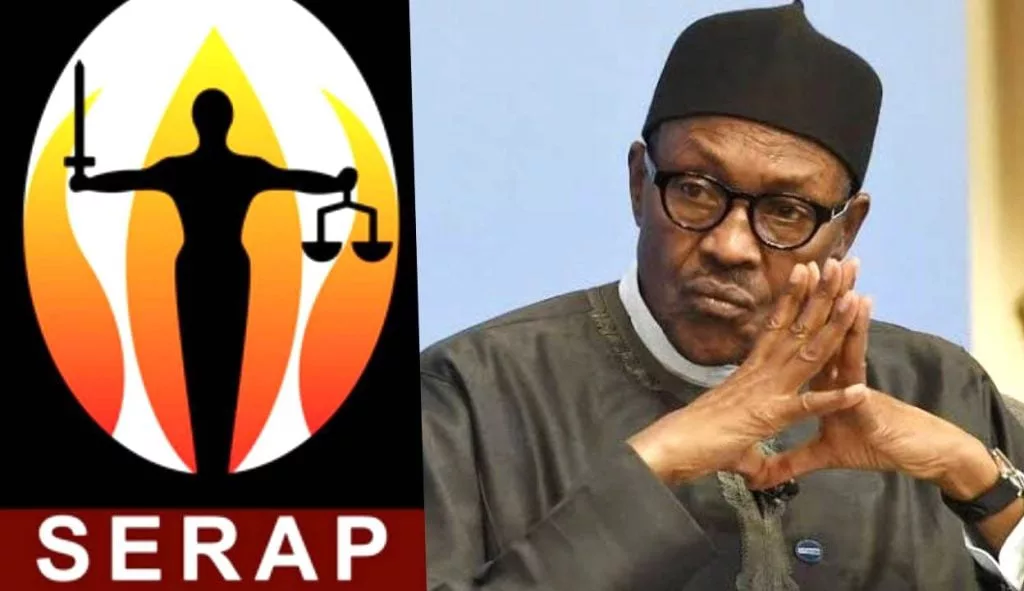The Socio-Economic Rights and Accountability Project (SERAP) has asked a Federal High Court in Lagos to compel President Muhammadu Buhari to direct the Nigerian Electricity Regulatory Commission (NERC) to reverse recently effected increase in electricity tariff.
SERAP is also asking the court, in the suit which is yet to be assigned to a judge, to order President Buhari to direct the Attorney General of the Federation and Minister of Justice, Abubakar Malami (SAN) and appropriate anti-corruption agencies to promptly investigate the spending of public funds as investments and bailouts to DisCos and GenCos since 2005.
Apart from Malami, other respondents in the matter are: the Nigerian Electricity Regulatory Commission and the Nigeria Bulk Electricity Trading PLC.
The civil society organisation is also asking the court to compel the president to ensure the prosecution of anyone suspected to be responsible for the misappropriation of investments and bailouts in the power sector, if there is sufficient admissible evidence, and any missing public funds should be traced and fully recovered.
It further prayed the court to order the Nigerian Electricity Regulatory Commission to reverse the unlawful, unjust and unreasonable increase in electricity tariff, which reportedly occurred in December 2022.
In an affidavit attached to the suit, SERAP is arguing that regular and uninterrupted access to electricity is a fundamental human right and that electricity is an essential public service but millions of Nigerians continue to pay the price for corruption in the electricity sector–staying in darkness.
The group submitted that the increase in electricity tariff failed to follow due process of law and that is entirely inconsistent and incompatible with the provisions of 1999 Constitution, the Electric Power Sector Reform Act and the country’s international human rights obligations.
SERAP averred that the increase is unjustified, especially given the unreliable, inefficient and poor quality of electricity in the country and that millions of Nigerians continue to live in darkness despite the spending by governments of trillions of Naira as investments and bailouts to electricity companies.
It insisted that the federal government has a legal responsibility to ensure transparency and accountability in how the investments and bailouts to electricity companies are spent, to reduce vulnerability to corruption and mismanagement.
SERAP argued that the government has legal obligations to effectively and progressively provide affordable, regular and uninterrupted access to electricity as a matter of human rights.
The suit filed on behalf of SERAP by its lawyers Kolawole Oluwadare and Ms Adelanke Aremo read in part, “The increase in electricity tariff would exacerbate the extreme poverty across the country, and undermine the ability of millions of Nigerians to satisfy basic human needs.
“The consequences of corruption in the electricity sector are felt by citizens daily. Corruption exposes them to paying additional costs and crazy electricity bills. Electricity supply remains inadequate and irregular.
“Investigating the allegations of corruption in the spending on the investments and bailouts to electricity companies, and recovering any stolen public funds would serve the public interest.
“The government has a sacred duty to ensure transparency and accountability in the spending of the country’s resources, including the spending of public funds as investments and bailouts to electricity companies.
“The latest increase in electricity tariff is coming on the heels of the NBC report which shows that over half of the population of Nigeria are multidimensional poor and cook with dung, wood or charcoal, rather than clean energy.
“High deprivations also appeared nationally in sanitation, time to healthcare, food insecurity, and housing. Access to regular electricity supply would improve the quality of life of the population.
“Access to affordable electricity services is a prerequisite for improving the condition of people living in poverty. It is a means to generate other important services that mitigate poverty, bearing in mind that access to electricity facilitates the eradication of poverty.
“The hike in tariff would increase financial burdens for socially and economically vulnerable Nigerians and further marginalise and disproportionately affect them and exacerbate their vulnerability to discrimination,” SERAP said.
No date has been fixed for the hearing of the suit.











